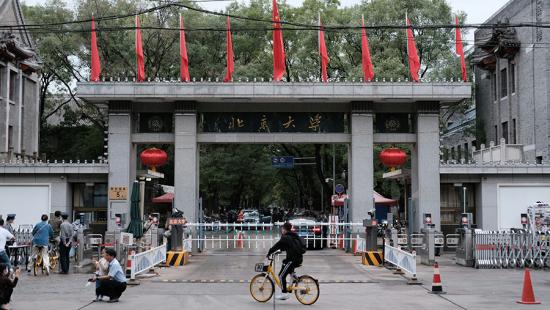Esra Akcan: Right to Heal – Concepts, Stories, and Images of a Book

Abandoned town of Suakin, Sudan. image / Esra Akcan
Michael A. McCarthy Lecture
Abstract
In this lecture, Esra Akcan will introduce her forthcoming book Right to Heal: Resettler Nationalism and Architecture after Conflicts and Disasters (Duke University Press, 2025). This book explores architecture's role in healing societies after conflicts and disasters by discussing buildings and spaces in relation to transitional justice and energy transition. It locates spaces of political and ecological harm and makes a call to repurpose them as healing spaces where violence and violations are confronted and accountability and reparations are instituted. By discussing healing as a matter of rights and a holistic notion of justice to be achieved retroactively, the book critically examines the causes of opportunistic responses to crises and, at the same time, demonstrates architecture's creative potential for meaningful restitution. Each chapter discusses a distinct type of conflict or disaster in conjunction with related architectural programs but reveals connections and incompletions that lead to the conclusion that right-to-heal involves a simultaneous and open-ended struggle toward social, global, and environmental justice. As chapters proceed from individual to communal to planetary healing, they also demonstrate that sudden shocks have deep roots in intertwined history, for which the book suggests the concept of resettler nationalism to explain the lands that it covers during the long twentieth century and to provide a layered global history as a necessary correction to binary and exclusionary accounts. Connected both conceptually and episodically, each chapter brings new archival and on-site research on a focused story about an ongoing struggle toward healing, which explores the aftermath of the Ottoman Empire's dissolution in British colonies/mandates and successor independent states (regions referred to as "Middle East," "Balkans," "Southeast Europe," "Northeast Africa"); while also reaching out to similar examples around the world by disclosing the role of solidarity movements and international institutions. After introducing the book in general, Akcan will focus on fragments pertaining to climate disasters.
Bio
Esra Akcan is Professor and Director of Graduate Studies in the Department of Architecture and a board member at the Institute for Comparative Modernities at Cornell University. Akcan's research on modern and contemporary architecture and urbanism foregrounds the intertwined histories of Europe, West Asia, and Northeast Africa, and offers new ways to understand architecture's role in global, social, and environmental justice. She has written extensively on critical and postcolonial theory, racism, immigration, reparations and transitional justice, architectural photography, translation, neoliberalism, and global history. She is the author of Landfill Istanbul (2004); Çeviride Modern Olan (2009); Architecture in Translation: Germany, Turkey and the Modern House (2012); Turkey: Modern Architectures in History (2012, with Sibel Bozdoğan); Open Architecture: Migration, Citizenship and the Urban Renewal of Berlin-Kreuzberg by IBA-1984/87 (2018); Abolish Human Bans: Intertwined Histories of Architecture (2022) and co-editor of Art and Architecture of Migration and Discrimination (2023, with Iftikhar Dadi). She has received awards and fellowships for her publications, such as those from Cornell University (Provost, Einaudi Center for International Studies, Mui Ho Center for Cities), Radcliffe Institute for Advanced Studies at Harvard University, Graham Foundation (3 times grantee), Canadian Center for Architecture (2 times scholar), American Academy in Berlin, UIC, Institute for Advanced Studies in Berlin, Clark Institute, Getty Research Institute, CAA, Mellon Foundation, DAAD and KRESS/ARIT.







